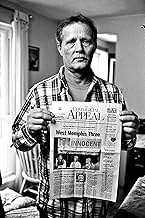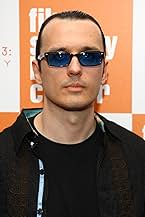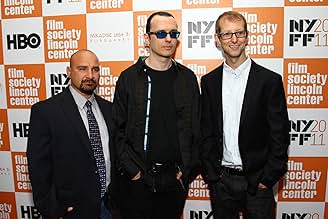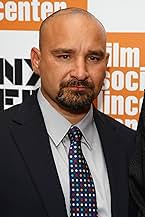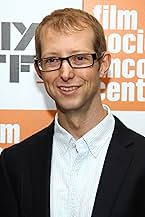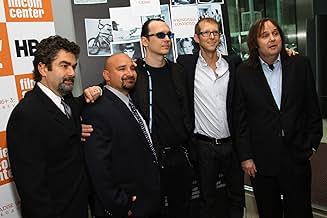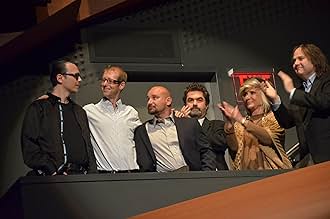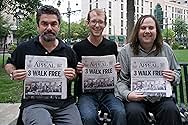Ajouter une intrigue dans votre langueA further followup of the case of the West Memphis Three and the decades long fight to exonerate them that finally gained traction with new DNA evidence.A further followup of the case of the West Memphis Three and the decades long fight to exonerate them that finally gained traction with new DNA evidence.A further followup of the case of the West Memphis Three and the decades long fight to exonerate them that finally gained traction with new DNA evidence.
- Nommé pour 1 Oscar
- 5 victoires et 6 nominations au total
- Self - Former Chief Investigator, West Memphis Police
- (images d'archives)
- Self - Parent of Michael Moore
- (images d'archives)
- Self - Parent of Michael Moore
- (images d'archives)
- Self - Mother of Stevie Branch
- (images d'archives)
- Self - Mother of Christopher Byers
- (images d'archives)
- Self - Perpetrator
- (as Damien Echols)
- Self - Perpetrator
- (as Jessie Misskelley Jr.)
- Self - Prosecuting Attorney
- (as John Fogleman)
- Self - Detective, West Memphis Police
- (images d'archives)
- Self - Suspect's Girlfriend
- (images d'archives)
- Self - Neighbor
- (images d'archives)
- Self - Jason Baldwin's Neighbor
- (images d'archives)
Avis à la une
Excellent use of first person video archives to bring the viewer up to date regarding the crime, it's casualties, and developments. Smashing use of new video interviews, study of involvement and final results of the entire episode surrounding the three accused in this criminal case. The documentary is well put together. Video and sound are excellent.
This is a true historical document that shows a "Crime in America" from start to bitter end. My twenty six year as a law enforcement officer of which twenty were as a death investigator give me a unique opinion of case facts.
It was a genuinely interesting experience for me to look at this documentary from an outside perspective using no real explored physical evidence or deduction.
It intrigued me to follow the case through media coverage, photographic and video graphic statements, as well as personal thoughts, assumptions, and fabrications. This was absolutely what could be expected for the information available to the general public. I have never had to look at information in this manner of privacy and what is available for the average citizen.
In contrast, bias appears much more pronounced in the legal system in 1993, and included police coercion, sloppy police work, and obvious jury misconduct, among other problems. The small town of West Memphis was overwhelmed with emotional hysteria of family and neighbors, all wanting revenge for the killings. The police were out to convict the easiest target, and the prosecutor wanted a quick win, and was facilitated by a judge who was anything but unbiased. No DNA testing was available back then.
At one point in the program, Misskelley says he was at a Dyess, Arkansas wrestling match at the time of the murders. So how is it that the prosecutor was able to convince a jury that Misskelley was guilty? Instead of answering the alibi question, the program proceeds down a different investigative avenue.
That is one glaring problem in a program that overall does not flow well. It jerks back and forth between people and time periods. There are so many people involved in this case, it's hard to keep track of names and faces. I also didn't like the inclusion of Hollywood celebrities who, despite their lack of involvement in the original trials, think they can determine the three guys' innocence via superficial arguments and secondary sources, which reeks of celebrity arrogance.
Despite the documentary's biased point of view in favor of the WM3, and despite how the program is put together, it is worth watching. By inference, it shows how the jury system is rigged against a defendant in a murder trial. In the future, one would hope that juries will be outlawed, and replaced by forensic evidence only, correctly obtained and tested, that proves innocence or guilt. Having hysterical people render life and death decisions based on the games lawyers play is truly frightening.
The murders of three second graders, Stevie Branch, Michael Moore, and Christopher Byers, in May 1993 was horrific and shocked the entire quiet community of West Memphis, Arkansas. It was proved that belief in Satanism was occurring, and the town was hellbent and frustrated to find the heartless brutes responsible for such a heinous, unforgivable crime. Jessie Misskelley Jr. was arrested and interrogated for over twelve hours with no parent or attorney present in the room. Possessing an IQ of only 72 made it very clear that the response we were going to get would be shaky and murky. Only the last forty-five minutes or so were recorded on tape and went on long enough to show Misskelley had contradicted himself on when the murders took place.
During the confession, Misskelley claimed to be involved with Damien Echols and Jason Baldwin, two other West Memphis teenagers. Baldwin, Echols, and Misskelley were all arrested, tried, and sentenced to life in prison and Echols was placed on death row. However, years after their conviction new evidence came forth - bite marks on one of the victim's heads. The three took bite impressions, none of them matching the bite marks on the boy's forehead.
After being denied numerous appeals in the state of Tennessee, the men finally applied for a hearing with the new evidence in the Arkansas Supreme Court. A new hearing would be set for December 2011. Though unexpectedly, in August 2011, the prosecutors and the defense lawyers negotiated a plea that would let the men be released from prison if they pleaded guilty but could maintain their innocence. They accept and now are free on the streets after serving 18 years and 78 days.
Paradise Lost 3: Purgatory spends about forty-five minutes recapping the events that occurred in the first two documentaries, then works around the details developed in present day. We get well conducted interviews with all three men again, and we see how greatly their personalities and attitudes have changed towards the world around them. Jason Baldwin, who didn't speak all that much in the first two films, says some of the most compelling lines in Purgatory. One of them being "Our trial was guilty until proved innocent." Just sends a shiver up your spine.
I've been saying all along that the trial of the three boys seemed to act more on impulse and personality traits of the boys rather than hardcore, indisputable evidence from the crime scene.In Paradise Lost 2: Revelations, the film danced around the fact that Christopher Byers' stepfather, John Mark Byers, might've had something to do with the murders. He is eerie in appearance, outspoken, and very suspicious on camera. Not to mention, he changes his story multiple times on his whereabouts and his false teeth during the time of the murders.
To make a dirty sea even gloomier, Purgatory offers another option that Terry Hobbs, Stevie Branch's stepfather, could've be involved in the murders. His hair was found on one of the shoestrings used to hogtie one of the boys up, and his story, like Byers', changes drastically throughout the film. It's shocking, scary, and sometimes seemingly incorruptible in presentation.
The more I watched of each film the more I grew sympathetic and fond of the three accused. They seem like intelligent people stuck in a merciless and unfair situation. Echols, my favorite of the three, is intelligent yet eclectic - a good trait in many adolescents. Sadly, it got him in a boatload of trouble. More trouble than one could possibly imagine.
This marks the possible end to what could very well be some of the greatest, deepest, most personal and up close documentaries ever captured on film. Paradise Lost isn't only focusing on a largely unfair case, but it is showing the dangers and horrors of a biased system during a serious trial. Not to mention, when finally released they are still baring an essence of guilt. That is not right. Justice did not prevail for these poor kids. They're free, sure, but are they fully innocent? That's another question.
Starring: Damien Echols, Jessie Misskelley Jr., and Jason Baldwin. Directed by: Joe Berlinger and Bruce Sinofsky.
This has an altogether different aim. It presses a case that had by then garnered wide traction, attempts some investigative journalism about who really did it and offers a summation of a fight that was justly won, however late for these people. It was the third film at this point, everyone by now looks more accustomed to the presence of the camera, more self-conscious about us being there to see. It has closure and a moral.
So it doesn't feel like we are catching ignorance unawares and seeing it as it mangles lives. I see instead an article about how terrible it is. I'm glad that it documents what it does of course, dismayed at the redneck judge who is now in the state senate, but that's it.
Le saviez-vous
- AnecdotesTodd and Dana Moore, the parents of 8 year-old victim Michael, wrote a letter to the Academy of Motion Pictures Arts and Sciences asking that the film be removed from consideration. In the letter they said that the film glorifies Damien Wayne Echols, Jason Baldwin and Jessie Misskelley. Director Joe Berlinger had in fact acknowledged during an interview with salon.com that he determined Echols was innocent after speaking with him for five minutes prior to the trial. Despite the Moore's request the film was nominated for Best Documentary, Features for the 84th Annual Academy Awards. It lost to Undefeated (2011).
- GaffesMichael's dad says he hopes the West Memphis Three are burned at the stake, like in Salem. He is referring to the Salem witch trials, in which none of the convicted were executed that way. They were hanged. This is a popular misconception, that confuses colonial times with the medieval.
- Citations
Damien Wayne Echols: If I focused on the things I can't change, the things that have hurt me, what people have done to me, then they would have already broken me. They would have killed me inside and out. I can get up in the morning and I don't feel sorry for myself, I don't hate my life. You have a lot of people in here that all they can think about is what they don't have and how much they want out and how much they want something else. But for some reason, this situation has helped me to see more of what I do have and to be thankful for that. You know, I have, in a lot of ways, I have a truly incredible life.
- Versions alternativesThe directors said that audiences at the Toronto International Film Festival in September 2011 would be the only audiences to see the film in that version. The reason is that events which took place the previous month necessitated a new ending to the film.
- ConnexionsFeatured in West of Memphis (2012)
- Bandes originalesWelcome Home (Sanitarium)
Performed by Metallica
Written by James Hetfield, Lars Ulrich and Kirk Hammett
Published by Creeping Death Music (ASCAP)
Courtesy of Elektra Entertainment Corp
By arrangement with Warner Music Group Film & TV Licensing
Meilleurs choix
- How long is Paradise Lost 3: Purgatory?Alimenté par Alexa
Détails
- Durée2 heures 1 minute
- Couleur
- Rapport de forme
- 1.78 : 1
Contribuer à cette page




